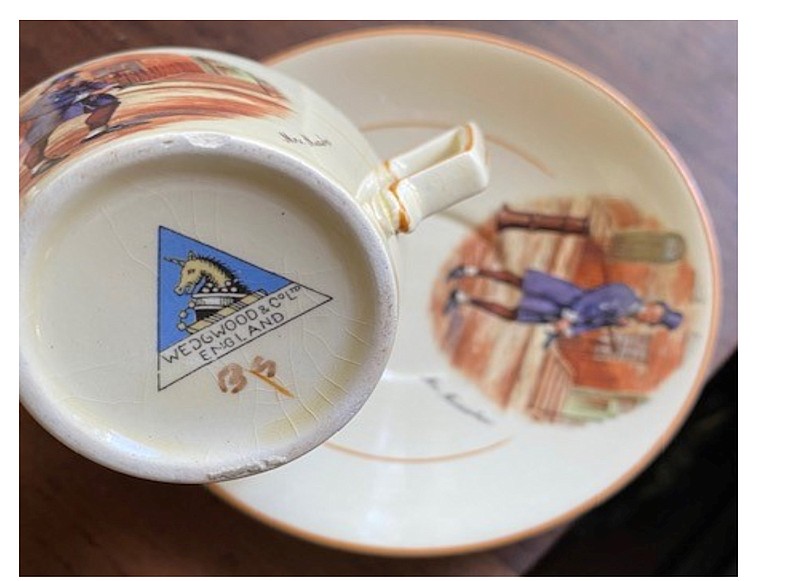DEAR HELAINE AND JOE: My husband and I received two Wedgwood cups and saucers as wedding gifts — one set with Mr. Pickwick on them and the other with Mr. Micawber. There is a No. 637 stamped into the bottom of each saucer. We would like to sell these but cannot find comparable pieces. Any information about them would be appreciated.
— M.C., Leander, Texas
DEAR M.C.: Oh! What a tangled web we weave ....
When collectors use the word "Wedgwood" they think of the products from the famous factory that was founded in Burslem, Staffordshire, England by Josiah Wedgwood in 1759 and exists to this day. When this word is spoken, many people think of the lovely china dinnerware they selected before their wedding day that is now prominently displayed in a china cabinet but seldom used.
The vast majority of all this dinnerware was truly made by the justly famous company, but other dinnerware and household decorations that bear the name "Wedgwood" (or "Wedg-wood," or even "Wedgewood") were not made by the renowned maker. Unfortunately, the cups and saucers in today's question fall into this category.
The name confusion started early when Ralph Wedgwood founded a pottery in Burslem in 1766 and began marking their products "Wedgwood." The wares made by this company do not quite come up to the quality of the original Wedgwood, and they do not give serious Wedgwood collectors much of a problem.
It is also reported in some sources that Ralph Wedgwood, who went out of business in 1836, might have marked some of his products "Wedgwood & Co." It needs to be understood that any piece marked "Wedgwood & Co" was not made by Josiah Wedgwood.
The cups and saucers belonging to M.C. have a great mark on them — a unicorn against a blue background inside a triangle with "Wedgwood & Co Ltd" forming the base of the triangle. This is the mark of Wedgwood & Co Ltd of Tunstall, Staffordshire, England, which ran the Unicorn Pottery and Pinnox Works.
The firm was founded in 1860 and went out of business in 1965. Originally, they were part of Podmore, Walker & Co (1834-1859); Podmore also used the mark "Wedgwood" and "Wedgwood & Co." The unicorn inside a triangle was first used by Wedgwood & Co in 1936. And since we do not know when M.C. was married, we have to say her cups and saucers were made sometime between 1936 and 1965.
They belong to a category of items called "Dickensware," which is more often associated with Royal Doulton in the United Kingdom and Weller Pottery in the United States. The decorations on the cups and saucers are transfer-printed, and the pieces were probably once part of a tea set.
Cup and saucer collectors are still out there, but they are not paying a great deal of money for their pieces (for the most part). At retail, these Wedgwood and Co cups and saucers should be valued in the $35 to $45 range for each set.
Helaine Fendelman and Joe Rosson have written books on antiques. Do you have an item you'd like to know more about? Contact them at Joe Rosson, 2504 Seymour Ave., Knoxville, TN 37917, or email them at [email protected]. If you'd like your question to be considered for their column, please include a focused, high-resolution photo of the subject with your inquiry.

